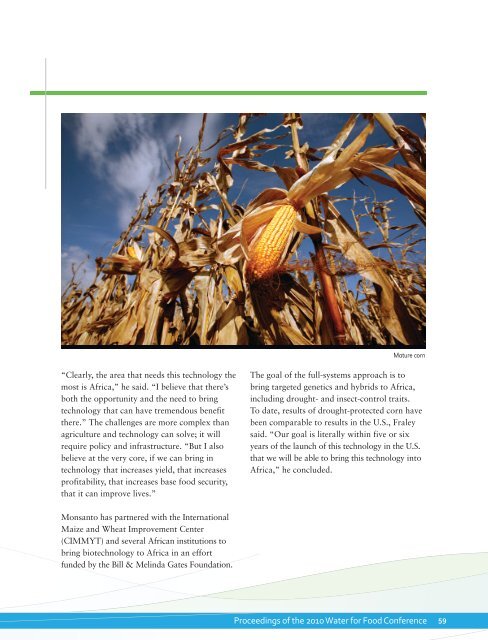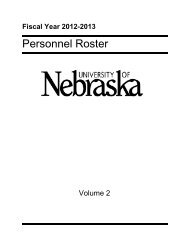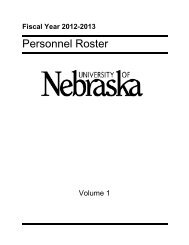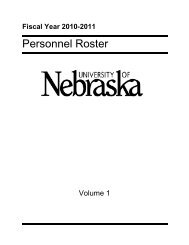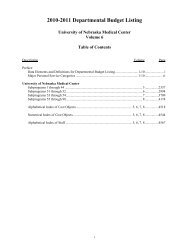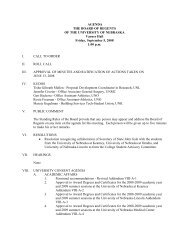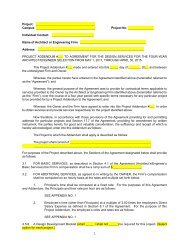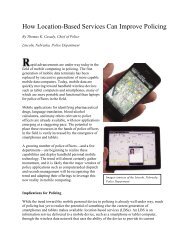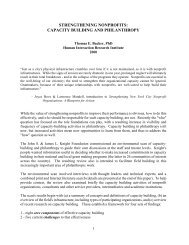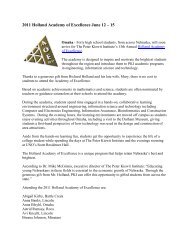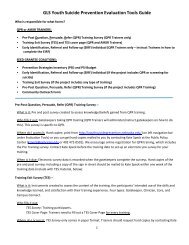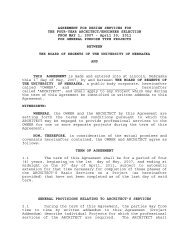Full Version - Water for Food Institute - University of Nebraska
Full Version - Water for Food Institute - University of Nebraska
Full Version - Water for Food Institute - University of Nebraska
You also want an ePaper? Increase the reach of your titles
YUMPU automatically turns print PDFs into web optimized ePapers that Google loves.
“Clearly, the area that needs this technology the<br />
most is Africa,” he said. “I believe that there’s<br />
both the opportunity and the need to bring<br />
technology that can have tremendous benefit<br />
there.” The challenges are more complex than<br />
agriculture and technology can solve; it will<br />
require policy and infrastructure. “But I also<br />
believe at the very core, if we can bring in<br />
technology that increases yield, that increases<br />
pr<strong>of</strong>itability, that increases base food security,<br />
that it can improve lives.”<br />
Monsanto has partnered with the International<br />
Maize and Wheat Improvement Center<br />
(CIMMYT) and several African institutions to<br />
bring biotechnology to Africa in an ef<strong>for</strong>t<br />
funded by the Bill & Melinda Gates Foundation.<br />
Mature corn<br />
The goal <strong>of</strong> the full-systems approach is to<br />
bring targeted genetics and hybrids to Africa,<br />
including drought- and insect-control traits.<br />
To date, results <strong>of</strong> drought-protected corn have<br />
been comparable to results in the U.S., Fraley<br />
said. “Our goal is literally within five or six<br />
years <strong>of</strong> the launch <strong>of</strong> this technology in the U.S.<br />
that we will be able to bring this technology into<br />
Africa,” he concluded.<br />
Proceedings <strong>of</strong> the 2010 <strong>Water</strong> <strong>for</strong> <strong>Food</strong> Conference 59


